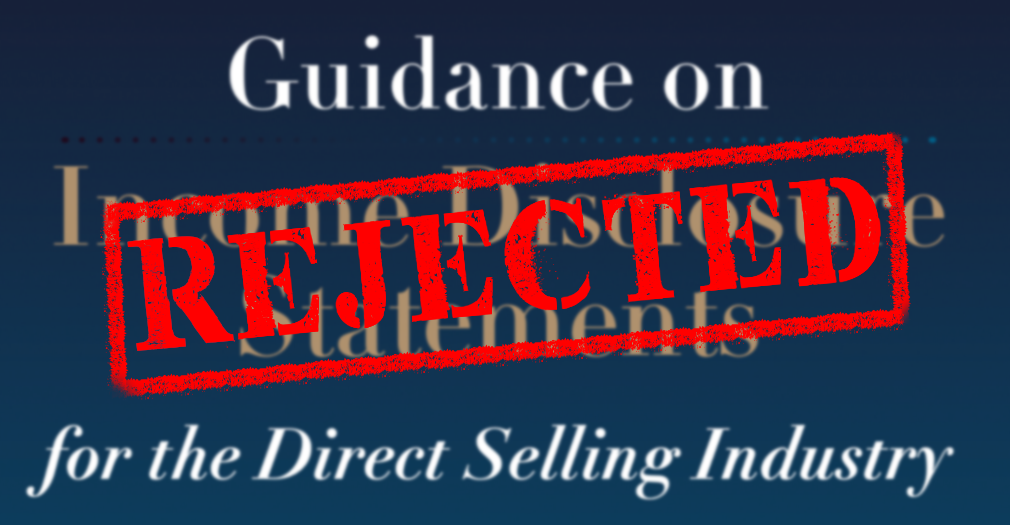
FTC Staff Urge MLMs Not to Rely on Industry Income Disclosure Guidance
Advisory opinion letter raises “serious concerns” with self-reg group’s guidance.
Tell your member of Congress to #MakeScammersPay
| Bonnie Patten
Following the U.S. Supreme Court’s recent decision holding that the FTC does not have the authority to obtain consumer redress when it goes into court to stop scammers, TINA.org has launched a campaign urging Congress to pass legislation that will #MakeScammersPay.
What’s at issue
Every once in a while a decision comes along that punches consumers right in the gut. The high court’s recent ruling in AMG Capital Management, et al. v. FTC is such a decision. The opinion wipes away 40 years of legal precedent and says that when the FTC goes to court to stop a scam artist it cannot get back the money that the scammer stole. As a result, the FTC no longer has the ability to make victims whole leaving defrauded consumers in the lurch.
In the five years leading up to the AMG decision, the FTC returned $11.2 billion in refunds to consumers, including victims of Volkswagen’s diesel emission-cheating scandal, Herbalife’s pyramid scheme and DeVry’s deceptive jobs ploy. But not anymore. Because of the AMG decision, a loan shark gets to pocket $1.3 billion that he stole from more than 4.5 million struggling Americans nationwide – people who simply needed loans to pay their rent and put food on the table.
And that’s just the tip of the iceberg. Another 2.7 million consumers enrolled in illegal credit-monitoring services will not see a penny of the $5.3 million ordered in reimbursement in the Credit Bureau case. Similarly, consumers who were overcharged $448 million as a result of AbbVie’s use of sham litigation to illegally maintain its monopoly over a specific drug will not see any refunds either. In fact, the FTC has dozens of pending cases with billions of dollars in potential consumer refunds at stake that may now simply disappear as a result of this ruling.
During these unprecedented times, it is imperative that the FTC not only stop deceptive marketing as quickly as possible but also expeditiously return money to victims struggling to make ends meet. The FTC cannot do that anymore and as a result U.S. consumers and honest businesses alike will suffer the consequences. While the FTC does have other tools at its disposal to address deception and recoup stolen funds, these alternatives are cumbersome and laborious taking as long as 10 years to resolve – which is 10 years for wrongdoers to spend their ill-gotten gains leaving victims with nothing in the end.
All hope is not lost
Congress can fix the problem but time is of the essence. Every day that Congress does not act to provide a broad and permanent fix to this problem is another day for con artists to steal money from our military veterans, our elderly, honest businesses and 320 million U.S. consumers.
We hope that you will join TINA.org in urging your members of Congress to #MakeScammersPay.
Read more:
Supreme Court Considers Whether Liars Can Keep Money They Stole
FTC letter to Congress signed by all five FTC commissioners
FTC’s Remedial Authority After AMG
TINA.org’s amicus brief in AMG v. FTC
Advisory opinion letter raises “serious concerns” with self-reg group’s guidance.
The agency puts the MLM industry on notice.
New documentary explores the rise and fall of LuLaRoe.


